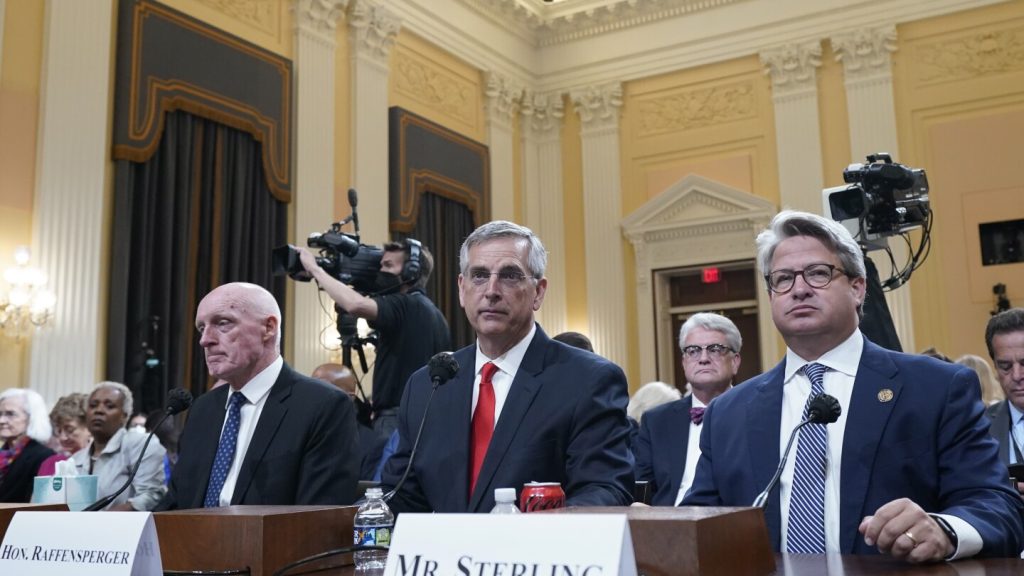The aftermath of the 2020 presidential election continues to linger as tensions remain high among election officials, particularly those belonging to the Republican Party. With the likely rematch between Biden and Trump approaching, concerns about public distrust of voting and ballot counting persist, especially among Republicans. Trump has continued to sow doubts about the legitimacy of the last election and is now warning his followers that Democrats will try to cheat in the upcoming one. A recent poll showed that only 22% of Republicans have high confidence that votes will be counted accurately in the next election, highlighting the urgent need for officials to defend the integrity of the electoral process.
In an effort to address these concerns and restore faith in the election system, a group of Republican officials has come together to reinforce the message that elections are secure and accurate. Led by the SNF Agora Institute at Johns Hopkins University and the R Street Institute, the group has been holding meetings in several states to discuss trust in elections, primarily among conservative officials. The goal is to develop a set of principles to uphold the integrity of elections and to support officials who find themselves in situations where they must defend the electoral process, much like Georgia’s Secretary of State Brad Raffensperger did in 2020 when he rejected false claims of election fraud.
One guiding principle for the group is that Republican officials should publicly affirm the security and integrity of elections nationwide and avoid fueling doubt about the electoral process in other jurisdictions. In order to build confidence in the electoral system, officials are encouraged to emphasize the common security measures and control mechanisms that ensure the integrity of elections across the country. The group aims to provide a structure of support for election officials who may face challenges similar to those encountered by Raffensperger, and to promote a unified message that elections are conducted fairly and transparently.
Despite the efforts of this group, some election officials hold different perspectives on how to address concerns about election procedures in other states. While some feel that the focus should be on improving policies and strengthening protocols to build confidence, others believe that questioning the legitimacy of elections and advocating for changes is necessary. However, there is a consensus that it is crucial for officials to unite in defense of the electoral process in order to reduce threats and harassment directed towards election workers. A recent survey found that nearly 40% of local election officials have experienced abuse, leading many to leave their positions and causing turnover in election administration roles.
As the country prepares for another contentious presidential election, the need for election officials to stand united in defense of the electoral process has never been greater. By coming together to affirm the security and integrity of elections and to address concerns about public distrust, Republican officials are working to ensure that the upcoming election is conducted fairly and transparently. Ultimately, the goal is to rebuild trust in the electoral system and protect the integrity of the democratic process, despite ongoing challenges and doubts about the legitimacy of past elections.















